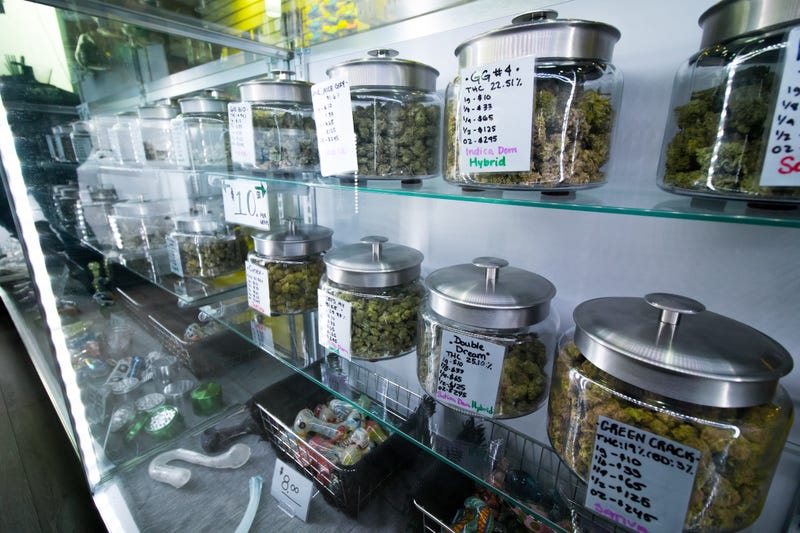
A new study found that young people in California are being exposed to marijuana products and marketing materials despite state laws.
Minors are not allowed to enter cannabis dispensaries, and state laws attempt to curb dispensaries’ marketing from reaching kids. However, the laws in place are not working as state lawmakers had hoped, according to the study.
“The low rate of compliance with age-limit signage and exterior ID checkpoints means it is easier for minors to enter cannabis dispensaries,” said lead author Yuyan Shi, an associate professor at UC San Diego.
“Once they’re inside, whether it is accidental or not, they can see an array of cannabis marketing materials and products.”
The study in JAMA Pediatrics was supported by a grant from the Tobacco-Related Disease Research Program and a grant from the National Institute on Drug Abuse. Researchers wanted to look at how effective the regulations meant to protect minors have been in the five years since Californians voted to legalize cannabis use and provide guidance for other states that legalize recreational cannabis use in the future.
The study looked at 700 legal dispensaries in California and found that a number of retail locations failed to adequately screen out minors. Researchers, who were mostly between 21 and 23 years old, went to dispensaries across the state to test the screen processes.
The vast majority, 97 percent, of dispensaries did adhere to ID checks. But only 12 percent of dispensaries checked IDs outside, which meant minors could be exposed to cannabis marketing and products. Close to 68 percent of dispensaries failed to post the required age limit signage.
Dispensaries also offered free samples and promotions that might appeal to teens, according to the study’s authors.
“While some dispensaries may be following the letter of the law with ID checks, they are not following the spirit of the law that intends to keep minors away from cannabis marketing and promotion of products,” said study co-author Rosalie Liccardo Pacula, a fellow at the USC Schaeffer Center for Health Policy and Economics.
Pacula and Shi recommended mandating compliance checks and penalizing dispensaries if they fail a random check. Currently, compliance checks are not mandated by the state, leaving it up to local authorities. The study also found that many localities did not have the resources to carry out random checks.
Even so, a first-of-its-kind study commissioned by the Insurance Institute for Highway Safety found that dispensaries were not selling to minors, according to the Orange County Register.
“Licensed marijuana retailers are clearly keen to follow the rules,” said Angela Eichelberger, a research scientist with the Insurance Institute who authored the report told the paper. “They’re aware that the industry hasn’t won everybody over yet, and they don’t want to get shut down.”
The study found the illegal market was responsible for selling marijuana products to children, not legal dispensaries.

